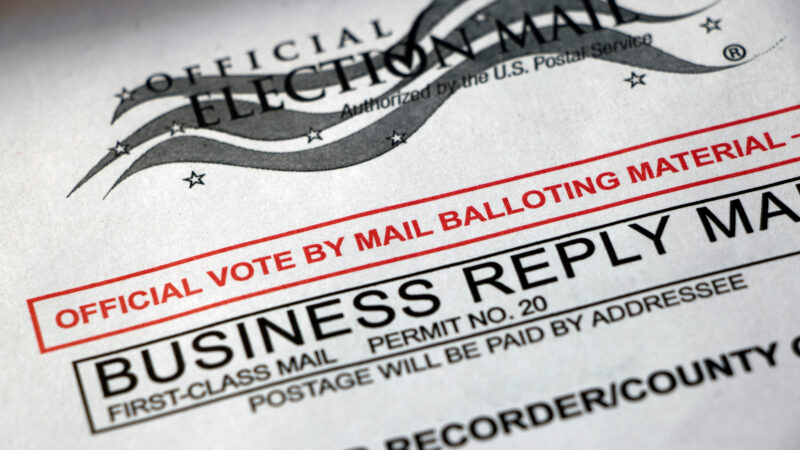Restrictions on absentee ballot help in Alabama are being challenged in a lawsuit
MONTGOMERY, Ala. (AP) — An Alabama law that criminalizes certain types of assistance with absentee ballot applications is being challenged in court by groups who say it “turns civic and neighborly voter engagement into a serious crime.”
The Alabama State Conference of the NAACP, the League of Women Voters, and other groups are plaintiffs in the lawsuit filed in federal court. They say the statute disenfranchises voters, including senior citizens and disabled voters, who may need assistance in the absentee voting process.
The new Alabama law, which restricts who can return or fill out an absentee ballot application, comes as Republicans in several states have looked to enact new restrictions on voting by mail after former President Donald Trump lost his bid for reelection in 2020.
The new Alabama law makes it a misdemeanor to return another person’s ballot application or distribute an absentee ballot application that is prefilled with information such as the voter’s name. It would become a felony — punishable by up to 20 years in prison — to pay someone to distribute, order, collect, deliver, complete or prefill someone else’s absentee ballot application.
“SB1 takes Alabama backwards as it violates the law, restricts our basic Constitutional Amendment rights, obliterates freedom of speech,” Benard Simelton, president of the Alabama State Conference of the NAACP, said in a statement. “It marginalizes voters’ access to the ballot box.”
Republicans in the Alabama Legislature had named the bill a key priority for the year and aimed to get it in place before the November election. GOP lawmakers argued that a voter could still request help with actual voting, but the restrictions on absentee ballot applications was needed to combat voter fraud through “ballot harvesting,” a term for the collection of multiple absentee ballots.
Alabama Secretary of State Wes Allen’s office said it could not comment on pending litigation but Allen reiterated support for the new law.
“SB1 provides Alabama voters with strong protection against activists who profit from the absentee elections process,” he said in a written statement. “I stand firm in my support of SB1 because now, under Alabama law, Alabama votes are not for sale.”
Opponents say there is no proof that ballot harvesting exists and call it an attempt to suppress voting by absentee ballot.
A federal judge in June blocked a Mississippi law from taking effect that named a short list of people who can “collect and transmit” an absentee ballot. The judge wrote that the Mississippi law violates the Voting Rights Act, a federal law that says any voter who is blind, disabled or unable to read may receive assistance “by a person of the voter’s choice.”
‘One year of failure.’ The Lancet slams RFK Jr.’s first year as health chief
In a scathing review, the top US medical journal's editorial board warned that the "destruction that Kennedy has wrought in 1 in office might take generations to repair."
Here’s how world leaders are reacting to the US-Israel strikes on Iran
Several leaders voiced support for the operation – but most, including those who stopped short of condemning it, called for restraint moving forward.
How could the U.S. strikes in Iran affect the world’s oil supply?
Despite sanctions, Iran is one of the world's major oil producers, with much of its crude exported to China.
Why is the U.S. attacking Iran? Six things to know
The U.S. and Israel launched military strikes in Iran, targeting Khamenei and the Iranian president. "Operation Epic Fury" will be "massive and ongoing," President Trump said Saturday morning.
Sen. Tim Kaine calls on the Senate to vote on the war powers resolution
NPR's Scott Simon talks to Sen. Tim Kaine, D-Va., about the U.S. strikes on Iran.
Iran strikes were launched without approval from Congress, deeply dividing lawmakers
Top lawmakers were notified about the operation shortly before it was launched, but the White House did not seek authorization from Congress to carry out the strikes.





